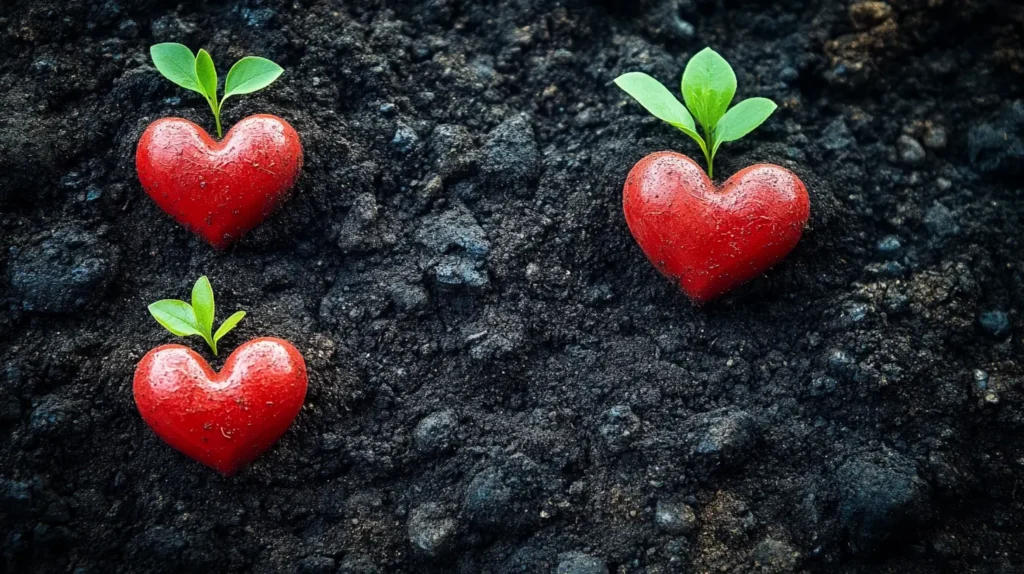Why Compassion & Kindness Matters
Kindness isn’t just about spontaneous acts; it involves creating an inner environment that naturally supports compassion, compassionate responses, and deeper connections with others. When we develop kindness skills, we build resilience, improve relationships, and enhance our own well-being.
Benefits of Kindness
- Improved mental health: Acts of kindness stimulate the release of oxytocin, a hormone linked to happiness and stress reduction.
- Enhanced empathy: Regular kindness practice helps us better understand others’ feelings and perspectives.
- Greater resilience: Kindness enables us to face challenges with patience and grace instead of frustration.
- Stronger communities: Compassionate actions foster support and trust within our social circles.
Research shows that kindness not only benefits others but also positively impacts our own brain and body chemistry, promoting both emotional and physical health.
Why Cultivating Kindness Matters

Kindness isn’t just about spontaneous acts; it involves creating an inner environment that naturally supports compassionate responses and deeper connections with others. When we develop kindness skills, we build resilience, improve relationships, and enhance our own well-being.
Benefits of Kindness
- Improved mental health: Acts of kindness stimulate the release of oxytocin, a hormone linked to happiness and stress reduction.
- Enhanced empathy: Regular kindness practice helps us better understand others’ feelings and perspectives.
- Greater resilience: Kindness enables us to face challenges with patience and grace instead of frustration.
- Stronger communities: Compassionate actions foster support and trust within our social circles.
Research shows that kindness not only benefits others but also positively impacts our own brain and body chemistry, promoting both emotional and physical health.
Developing Core Kindness Skills
To make kindness a natural part of your life, focus on building these foundational skills:
- Cultivating Empathy and Perspective-Taking
Empathy is the ability to emotionally connect with others’ experiences. Perspective-taking helps you understand situations from their point of view, moving beyond assumptions or judgments.
Techniques include:
- Active listening: Pay full attention without interrupting or planning your response.
- Asking open-ended questions: Encourage deeper sharing and understanding.
- Reflecting feelings: Verbally acknowledge the emotions someone expresses.
- Practicing Self-Compassion
Showing yourself kindness is crucial for emotional health and resilience. When you treat yourself with patience and understanding, you prevent burnout and increase your capacity to care for others.
Ways to practice self-compassion:
- Speak to yourself as you would a close friend during tough times.
- Allow yourself to make mistakes without harsh judgment.
- Engage in mindfulness exercises to stay present and reduce self-criticism.
- Building Kind Habits and Resilience
Consistency is key to embedding kindness into daily life. This involves overcoming obstacles like self-doubt, stress, or societal pressures.
Strategies to build kind habits:
- Set small daily goals for acts of kindness (e.g., compliment a colleague).
- Keep a kindness journal to track your efforts and reflect on experiences.
- Develop coping skills such as deep breathing or positive affirmations to manage setbacks.
Practical Exercises for Everyday Kindness
Daily Kindness Challenge:
Set a goal to perform one intentional act of kindness every day for a month. It could be as simple as holding the door open or sending a supportive message.
Empathy Reflection:
At the end of your day, think about an interaction where you practiced empathy or could have improved. Reflect on what you learned about the other person’s feelings.
Self-Kindness Pause:
When you notice self-critical thoughts, pause and consciously replace them with compassionate statements (e.g., “I’m doing my best, and that’s enough”).
Practical Exercises for Everyday Kindness
Daily Kindness Challenge:
Set a goal to perform one intentional act of kindness every day for a month. It could be as simple as holding the door open or sending a supportive message.
Empathy Reflection:
At the end of your day, think about an interaction where you practiced empathy or could have improved. Reflect on what you learned about the other person’s feelings.
Self-Kindness Pause:
When you notice self-critical thoughts, pause and consciously replace them with compassionate statements (e.g., “I’m doing my best, and that’s enough”).
Developing kindness skills transforms how you relate to yourself and others. By investing time in empathy, self-compassion, and habit-building, you create a resilient foundation for compassionate living. This foundation not only enriches your personal relationships but also contributes to a more supportive and understanding world.
Explore these ideas regularly, practice the exercises, and watch your capacity for kindness grow stronger every day.
